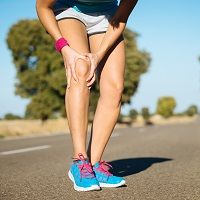Article
Birth Control Can Lower Risk of Knee Injury
Author(s):
Oral contraception could be a beneficial addition for female athletes… and their knees.

Oral contraception could be a beneficial addition for female athletes… and their knees.
Birth control is taken for a variety of reasons, including preventing pregnancy and helping make a more predictable menstrual cycle; however, injury risk reduction may be able to be added to the list of benefits. Researchers from The University of Texas Medical Branch (UTMB) of Galveston conducted an analysis on injuries to the anterior cruciate ligament (ACL) — which connects the top and bottom of the knee.
About 200,000 ACL injuries occur every year, with the majority of them resulting from a sports accident. Female athletes are about two times as likely to suffer from it as males who play sports — but why?
Previous research indicated that ACL injuries were more frequent during the menstrual cycle when estrogen levels are high. So the team hypothesized that the female hormone weakens the ACL which makes women more susceptible to injury.
- Related: Contraceptive Benefits for Women with Arthritis
With a database consisting of 23,428 young women with ACL injury ages 15 to 39, the researchers dove into the study that was published in Medicine & Science in Sports & Exercise.
“Birth control pills help maintain lower and more consistent levels of estrogen, which may prevent periodic ACL weakness,” lead author Aaron Gray, MD, PhD student, said in a news release. “With this in mind, we examined whether oral contraceptive use protected against ICL injuries that require surgery in women.”
It turns out that participants ages 15 to 19 had the highest incidence of ACL injury. In addition, those who underwent corrective knee surgery were 22% less likely to be on birth control than matched controls. Puberty may be to blame for the spike in estrogen levels and ACL injuries, according to Gray.
On the other hand, those who were ages 25 to 29 and 30 to 34 were more likely to be on birth control than matched controls. Therefore, the group that is most at risk for ACL injury is also the one that is taking less of the pill that could help balance out estrogen levels.
Also on MD Magazine >>> New Male Contraception? Researchers Say Not Yet





